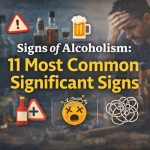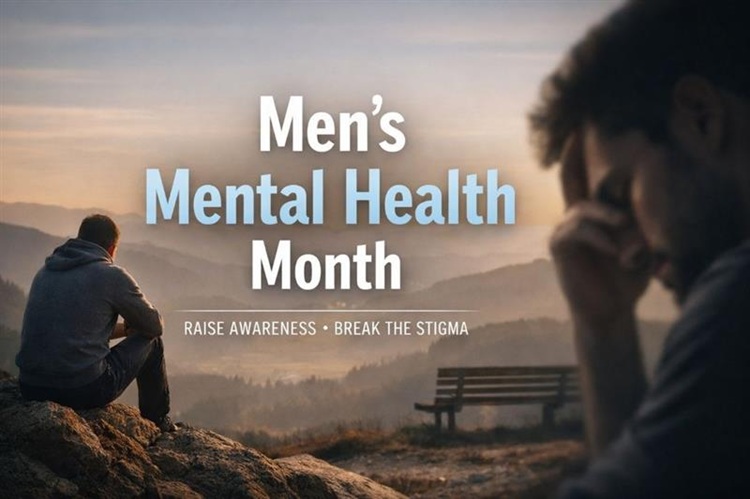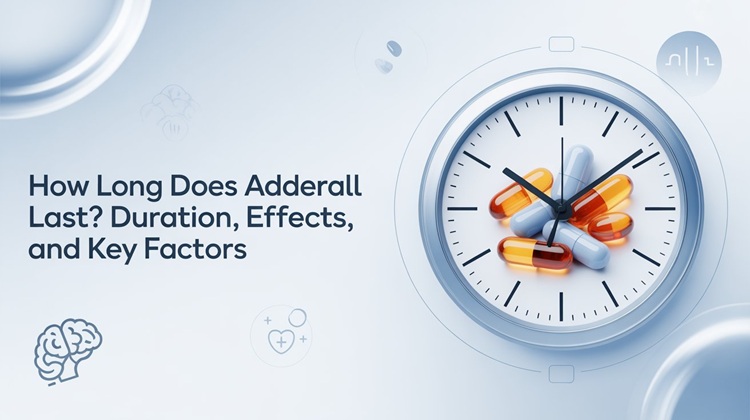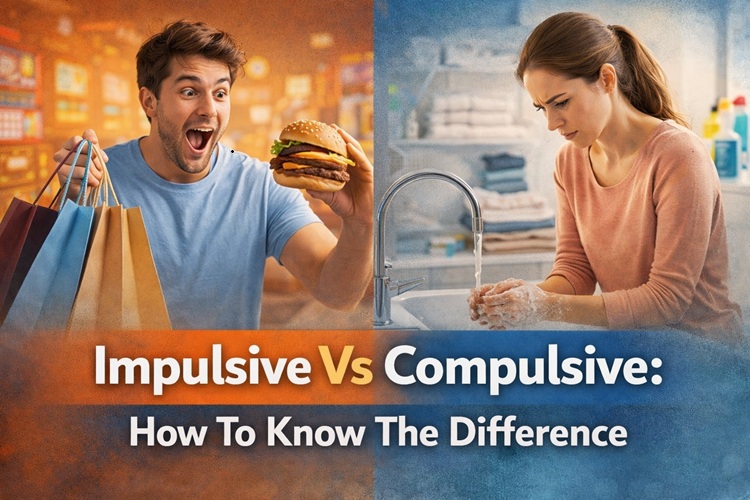In This Blog
- THC can remain detectable from days to over a month.
- Urine tests are the most common detection method.
- Frequency of use and metabolism affect detection length.
- No shortcuts or myths will erase THC instantly.
- Professional help makes quitting safer and easier.
- Healthy daily habits support your body’s natural detox.
What Does THC Stand For?
THC is short for tetrahydrocannabinol, the primary psychoactive compound in cannabis that produces that familiar “high,” or euphoric, altered state when people smoke marijuana, eat edibles or vape. As per, the National Institute on Drug Abuse (NIDA) further writes that as THC binds to brain receptors, It also has a half-life between 20 hours and 13 days it may take a considerable time to be eliminated in the body provided that the frequency of use is normal, the metabolism is normal, and the body is healthy. Being aware of the meaning of THC and how long your body retains it is one of the aspects that can help people make informed choices about cannabis use and drug testing.
100% Confidential Support is Available 24/7
No matter what you’re going through, you’re not alone. Our dedicated team is here to provide a safe, judgment-free space where you can talk openly and honestly. Whether you need emotional support, resources, or just someone to listen.
We’re here for you—completely confidential and always respectful of your privacy. Call us today!
Is THC, Marijuana, CBD, and Weed the Same?
This is where some of you all know you might be lost. They’re not the same. Think of it like this:
- Marijuana and Weed are essentially colloquial terms for the plant cannabis itself
- THC and CBD are only two of the hundred or so cannabinoids (substances) found in that plant
Compound | Effect |
THC | Psychoactive; creates a euphoric “high” |
CBD | Non-psychoactive; used for its therapeutic potential |
Marijuana/Weed | A plant in which THC and CBD are both found |
In other words, CBD is what people take for anxiety or inflammation and don’t want to get high. THC, meanwhile, is the one that causes the high. The fact is, how THC and CBD impact your body can change based on dosage, how you consume them and your unique biology, the Centers for Disease Control and Prevention (CDC) points out. Just remember that even a CBD product, even a hemp-derived one with very low amounts of THC, is not necessarily pure CBD.
Contact Palm Coast Treatment Solutions
Battling with Drug and Alcohol Addition? Remember, you are not alone and we are here to help you!
So, How Long Does THC Stay in Your System?
The million-dollar question, eh? It is a matter of fact that it is different to each individual. In some, THC may clear within few days. It takes weeks to others, especially when you use a lot. And the type of test, such as urine, blood, hair is a very, very big deal. Wondering how long does it take cannabis to stay in your system? The easy answer is that it will all depend on how you use it, your health, and the kind of test that is taken.
There are a lot of factors that determine how long THC is detectable:
- How often you use it: Occasional vs. chronic use is a very big difference.
- Your metabolism rate: Each person is a different metabolism rate.
- Your body fat: Because THC is fat-soluble, it has the potential to lodge in your fat cells and gradually seep out over time.
- how hydrated you are, and the food you ate/how much you’re eating.
- The sensitivity of the test: Some tests are only meant to find lower levels.
- The way you consume it: Smoking, vaping and edibles all metabolize differently.
Here’s a fun fact: typically, it’s not actually the THC that drug tests are after. They’re searching for its by-products, known as THC metabolites, which stick around in your body far longer. Your liver metabolizes the THC, and the byproducts are stored in your fat cells before gradually reentering your bloodstream, explained the National Institutes of Health (N.I.H)
For all of you asking, “how do you get pot out of your system fast?” the straight answer is that there isn’t any magic. Some things, like being hydrated, can help, but there is no proven way to flush it out of your system overnight.
Long-term Effects of THC
These are effects that can accumulate and may be the long-term consequences of frequent or long-term use.
- Lung irritation (if smoked)
- Higher anxiety or depression.
- Reduced motivation
- Potential for dependence or addiction
- Possible cognitive decline
- Effect on scholastic achievement or occupational functioning
Short-term Effects of THC
These effects come on rapidly and may affect attention and coordination.
- Impaired memory
- Slower reaction time
- Increased heart rate
- Dry mouth and red eyes
- Altered time perception
- Impaired driving ability
Effects on the Body of THC
THC affects many systems in the body other than the brain.
- Increased appetite
- Reduced motor coordination
- Fatigue or drowsiness
- Altered sensory perception
- Possible lung irritation when inhaled as a vapor or smoke
- Slowed digestion with edible cannabis
Effects on the Heart of THC
There are cardiovascular implications from cannabis use.
- Elevated heart rate
- Risk of irregular heartbeat
- Increased blood pressure
- Higher risk during physical activity or anxiety
- Enhanced risk for cardiac events in the presence of risk factors
- Increased short-term risk of heart attack or stroke in heavy users, as reported by the Centers for Disease Control and Prevention (CDC).
Effects on the Brain of THC
THC changes the way the brain processes information.
- Euphoria
- Altered judgment
- Hallucinations at high doses
- Difficulty with memory
- Impaired concentration
- Potential lowering of IQ in the short term for young users
Effects on Behavior of THC
After effects, Behavioural changes are commonly associated with cannabis use.
- Mood swings
- Increased risk-taking tendencies
- Social withdrawal
- Irritability
- Reduced productivity
- Higher likelihood of skipping responsibilities
Men vs. Women: Does it matter?
Men and women might metabolize THC differently.
- Men and women might metabolize THC differently.
- Women may metabolize THC quickly but feel the effects longer
- More extreme appetite stimulation may be seen in males
- Women also may experience intensified withdrawal symptoms.
- Hormonal variation could be a basis for effects that vary
This should give you a fair understanding of how long weed stays in the system after quitting and, for those wondering, how long THC stays in urine.
100% Confidential Support is Available 24/7
No matter what you’re going through, you’re not alone. Our dedicated team is here to provide a safe, judgment-free space where you can talk openly and honestly. Whether you need emotional support, resources, or just someone to listen.
We’re here for you—completely confidential and always respectful of your privacy. Call us today!
Expert Advice:
Go for a brief walk every day. Light exercise aids the natural detox process.
Overcome Addiction with Palm Coast Treatment Solutions.
Book an appointment.
How to Get Weed Out of Your System
Let me be very clear here: There is no magic trick, magic tea or magic smoothie that will allow you to flush marijuana out of your system instantly. Your body chugs along the task steadily, mostly through your liver, until it’s eliminated in your urine and stool. You can’t speed it up, but you can certainly help it out with some good-for-you habits:
- Stay hydrated
- Eat a balanced diet
- Ensure you get enough sleep.
- Engage in regular exercise
- Steer clear of fried processed foods which can slow things down
- Think about digging into fiber-filled foods to keep things moving.
How to get pot out of your system fast?
Let’s be clear, there’s no magic bullet or quick fix to get THC out of your body. Your body takes its sweet time processing it, primarily through your liver, before excreting it in your urine and stool. You can’t force things along, but you can certainly help them along with some healthy habits:
- Stay hydrated
- Eat a balanced diet
- Do remember to sleep enough
- Engage in regular exercise
- Stay away from processed fatty foods that could slow down the process
- Think about high-fiber foods to aid digestion
Overcome Addiction with Palm Coast Treatment Solutions.
Book an appointment.
How long does weed stay in the system after quitting?
When you stop, THC doesn’t just go away. It loves to live in your fat stores and can be released slowly, which is why some people test positive weeks after last use. The timeline really varies by how much you use it:
- Occasional users: 3–7 days
- Moderate users: 1–2 weeks
- Heavy users: 3–6 weeks
- Chronic users: 30+ days
How Long Does THC Stay in Urine?
This is the most frequently asked question, as urine testing is the most common method of testing for marijuana use. Because THC metabolites are stored in fat, they can be slowly released into your urine over an extended period of time. Here’s what that schedule usually consists of:
- Single use: up to 3 days
- Moderate use: 1 week
- Heavy use: 30+ days
- Chronic heavy use: 6 weeks or more
The tests can detect even tiny amounts of those THC metabolites, according to the Centers for Disease Control and Prevention (CDC). And though blood and saliva tests, for example, have a shorter detection window, urine is the standard because it is reliable and cheap.
Overcome Addiction with Palm Coast Treatment Solutions.
Book an appointment.
Overcome Addiction with Palm Coast Treatment Solutions.
Book an appointment.
THC Risks and Dangers
What are the risks and dangers of THC?
It is necessary to be aware that moderate to heavy use of cannabis is not without risks and harms.
- Development of dependence or addiction
- Impaired cognitive function
- Anxiety or paranoia
- Challenges at work or school
- Increased accident hazards as a result of lack of coordination
- Reduced decision-making ability
- Impaired driving
- Elevated psychosis risk
- Difficult withdrawal symptoms
- Legal or job consequences with respect to failed drug screening
- Increased risk, especially when taken with alcohol or drugs
What are THC Withdrawal Symptoms?
Your body may react when you stop using cannabis, especially if you were a heavy user. This is known as withdrawal.
- Irritability
- Sleep problems
- Cravings
- Mood swings
- Headaches
- Loss of appetite
- Restlessness
- Difficulty concentrating
Symptoms tend to begin within a day or two of your last use, peak in the first week and diminish over about two weeks for most people. There are also some people who experience long-term issues, such as disrupted sleep, that continue for even longer, according to the National Institutes of Health (NIH).

THC Treatment Options
Quitting THC is tough, but professional care boosts success by 74% (SAMHSA). Proven therapies like CBT, MET, and Contingency Management plus holistic options like mindfulness and peer support, can help you reclaim control.
At Palm Coast Treatment Solutions, we deliver evidence-based, personalized recovery plans. Start your journey today. Call (386) 284-4151 and take the first step toward lasting freedom.
Final Analysis:
- THC alters the mind, body and behavior.
- THC can be detected in urine tests the longest.
- No quick detox methods exist.
- Supportive treatment options are available.
- Consult with your health provider before making health decisions.
- Good lifestyle habits make detox and withdrawal easier.
- New research This work is part of a growing body of research into THC.
Disclaimer: This post serves educational purposes and does not replace a prescription or medical advice. If you are worried about the use of cannabis or testing, please consult a physician.
Related FAQs
Can THC be addictive or cause withdrawal?
Yes. Cannabis use disorders are actually believed to be real things. Those who quit after heavy use may suffer withdrawal symptoms including, irritability, cravings, headaches and sleeping challenges. These side effects typically resolve in one to two weeks.
Does exercise flush THC out faster?
Exercise may aid your body’s natural detox process through the burning of fat where THC is stored, but it won’t clear THC immediately. Exercise might reduce time to detection a bit, but it all depends on your frame, how often you smoke and also your metabolism.
How long does THC stay in hair tests?
Hair tests can pick up THC use for 90 days after the last consumption as the cannabinoids get encased in the hair follicle as your hair grows.
Can drinking water detox THC?
Hydrating with water supports hydration and kidney function, but will not flush THC overnight. Although drinking water helps boost a sound metabolism system, just drinking lots of water cannot promise one to pass a drug test within a short time.
Can secondhand marijuana smoke cause a positive test?
(In extremely smoky environments with poor ventilation, it could happen.) Regular drug tests typically won’t register a positive from incidental contact.
Is THC use safe during pregnancy?
No. Using marijuana while pregnant is associated with problems, including low birth weight and developmental issues. Experts recommend pregnant moms steer clear of THC altogether.






















